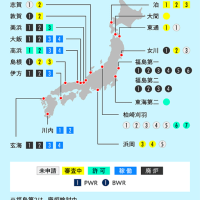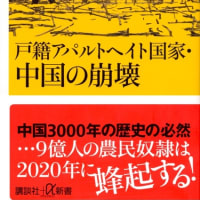05/14/2014 nytimes.com
The Opinion Pages | EDITORIAL
Japan’s Pacifist Constitution
By THE EDITORIAL BOARDMAY 8, 2014
http://www.nytimes.com/2014/05/09/opinion/japans-pacifist-constitution.html
Continue reading the main story
Advertisement
Continue reading the main storyShare This Page
SAVE
MORE
Continue reading the main story
Prime Minister Shinzo Abe of Japan is pushing for an expanded role for the Japanese military that would allow it to fight alongside allies beyond the country’s territory. He seeks to shoulder greater global security responsibilities by what he calls proactive pacifism.
But he faces a major hurdle. Article 9 of the Constitution, which has been nominated for the Nobel Peace Prize this year, states the Japanese people “forever renounce war as a sovereign right of the nation.” Mr. Abe’s aim to change the powers of the military would require a constitutional revision, which would mean winning two-thirds approval in both houses of Parliament, followed by a referendum ― a very tall order. So instead, Mr. Abe seeks to void Article 9 by having the government reinterpret the Constitution. Such an act would completely undermine the democratic process.
Mr. Abe’s highest political goal is to replace the Constitution written and imposed upon the Japanese by the American Army following World War II. For 67 years, not a single word has been amended. Mr. Abe strongly feels that the Constitution imposes an onerous restriction on Japanese sovereignty and is outdated. Still, as critics point out, he should know that the Constitution’s primary function is to check government power. It is not something that can be altered by the whim of government. Otherwise, there is no reason to bother with having a constitution at all.
As things stand, only the New Komeito Party, the junior coalition member of the government with a deep pacifist bent, could inhibit Mr. Abe’s ambition. Without New Komeito, the prime minister’s government loses its majority in the upper house, so Mr. Abe is doing his utmost to come up with a way toward a constitutional reinterpretation acceptable to New Komeito. The other eight opposition parties are in disarray. Mr. Abe has a strong hand, and Japan is facing a genuine test of its democracy.
A version of this editorial appears in print on May 9, 2014, in The International New York Times. Order Reprints|Today's Paper|Subscribe
05/14/2014 nytimes.com
ニューヨーク・タイムズ社説、安倍首相の解釈改憲への動きを激しく批判 The New York Times Editorial Criticizes Abe's Move to Reinterpret the Pacifist Constitution
05/08/2014 - 17:59
From Peace Philosophy Center
ニューヨーク・タイムズの電子版に、安倍氏による解釈改憲の試みを強烈に批判する社説が出た。紙版では、5月9日のニューヨーク・タイムズ国際版(International New York Times)
Japan’s Pacifist Constitution
日本の平和主義的憲法
http://www.nytimes.com/2014/05/09/opinion/japans-pacifist-constitution.html
By THE EDITORIAL BOARD MAY 8, 2014
Prime Minister Shinzo Abe of Japan is pushing for an expanded role for the Japanese military that would allow it to fight alongside allies beyond the country’s territory. He seeks to shoulder greater global security responsibilities by what he calls proactive pacifism.
日本の安倍晋三首相は、日本の軍隊が国境を超えて同盟国とともに戦うことを許すような役割の拡大を推し進めている。積極的平和主義と呼ぶものによって、安倍首相はより大きな世界的な安全保障の責任を担おうとしている。
But he faces a major hurdle. Article 9 of the Constitution, which has been nominated for the Nobel Peace Prize this year, states the Japanese people “forever renounce war as a sovereign right of the nation.” Mr. Abe’s aim to change the powers of the military would require a constitutional revision, which would mean winning two-thirds approval in both houses of Parliament, followed by a referendum ― a very tall order. So instead, Mr. Abe seeks to void Article 9 by having the government reinterpret the Constitution. Such an act would completely undermine the democratic process.
しかし安倍首相は大きなハードルに面している。今年ノーベル平和賞にノミネートされている憲法の第九条は、日本国民は「国権の発動たる戦争・・・永久にこれを放棄する」と定めている。安倍氏が目的としている軍隊の権限の変更は、国会両院の3分の2の承認の上に国民投票を要するという、大変困難なものであるからだ。だから替わりに、安倍氏は政府に憲法を再解釈させて九条を無効にしようとしている。このような行為は完全に民主的過程をないがしろにするものだ。
Mr. Abe’s highest political goal is to replace the Constitution written and imposed upon the Japanese by the American Army following World War II. For 67 years, not a single word has been amended. Mr. Abe strongly feels that the Constitution imposes an onerous restriction on Japanese sovereignty and is outdated. Still, as critics point out, he should know that the Constitution’s primary function is to check government power. It is not something that can be altered by the whim of government. Otherwise, there is no reason to bother with having a constitution at all.
安倍氏の政治の至上目的は、第二次世界大戦後米国陸軍によって起草され日本に課された憲法を取り換えることである。67年間、一言も修正は入っていない。安倍氏は、憲法は厄介な制約を日本の主権に課すものであって時代遅れであると感じている。しかし、[安倍氏を]批判する人たちが指摘するように、憲法の主要な機能は政府の権力を抑制するものであるということを安倍氏は知るべきである。政府の思い付きで変えられるようなものではない。さもなければ、そもそも憲法などを持つ理由さえなくなってしまう。
As things stand, only the New Komeito Party, the junior coalition member of the government with a deep pacifist bent, could inhibit Mr. Abe’s ambition. Without New Komeito, the prime minister’s government loses its majority in the upper house, so Mr. Abe is doing his utmost to come up with a way toward a constitutional reinterpretation acceptable to New Komeito. The other eight opposition parties are in disarray. Mr. Abe has a strong hand, and Japan is facing a genuine test of its democracy.
現状では、深い平和主義傾向を持つ政権の少数派連立メンバーの公明党だけが安倍氏の野心を抑えることができる。公明党ぬきでは、与党は参議院で過半数を失う。安倍氏は公明党に容認可能な憲法再解釈への道を考え出すことに最大の努力を払っている。他の野党8党は足並みが揃っていない。安倍の出方は強気であり、日本の民主主義は真正な試練に直面している。
↓
http://www.nytimes.com/2014/05/09/opinion/japans-pacifist-constitution.html




















※コメント投稿者のブログIDはブログ作成者のみに通知されます